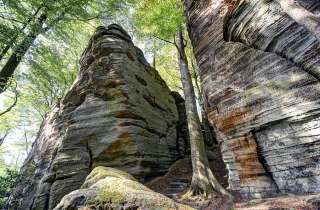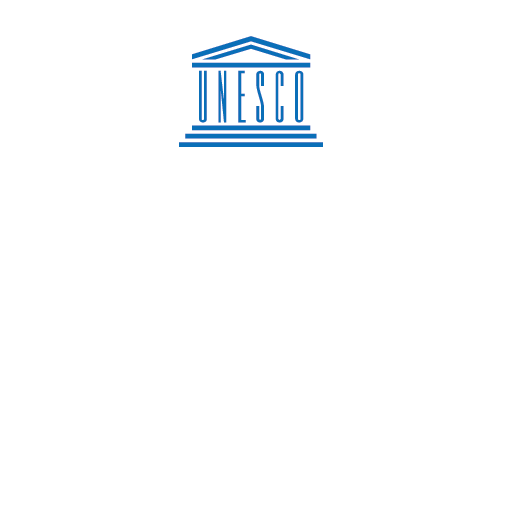By raising awareness of the importance of the area’s geological heritage in history and society today, UNESCO Global Geoparks give local people a sense of pride in their region and strengthen their identification with the area.
UNESCO Global Geoparks are single, unified geographical areas where sites and landscapes of international geological significance are managed with a holistic concept of protection, education and sustainable development. A UNESCO Global Geopark uses its geological heritage, in connection with all other aspects of the area’s natural and cultural heritage, to enhance awareness and understanding of key issues facing society, such as using our earth’s resources sustainably, mitigating the effects of climate change and reducing natural disasters-related risks.

Natur- & Geopark Mëllerdall: An aspiring UNESCO Global Geopark
Local sandstone characterises the spectacular rocks, deep valleys and extensive plateaus of the Natur- & Geopark Mëllerdall (Miller's valley) in the east of Luxembourg. The area's unusual rock formations are at the heart of its natural and cultural heritage and have made it well-known beyond the country's borders. The region's geological features also play a key role in the supply of drinking water, in the habitats of certain animal and plant species and in land use since the Stone Age.
The stunning landscapes of the Natur- & Geopark Mëllerdall can be explored on foot. The 112 km-long Mullerthal Trail runs through the whole area and connects different geologically significant sites. Exhibitions and museums in the region provide further information on the area, covering a range of topics from geology and the Stone Age through to drinking water and generating electricity.
The Natur- & Geopark Mëllerdall is currently preparing an application to become a UNESCO Global Geopark. Its aim is to convey the value of the region's geological heritage to the public, with a special emphasis on sustainable development in line with the UN's 2030 agenda. The candidacy is supported by governmental bodies such as the Ministry of Energy and Spatial Planning, regional partners including the Regional Tourist Office Mullerthal Region – Luxembourg’s Little Switzerland and the Luxembourg Commission for cooperation with UNESCO.

